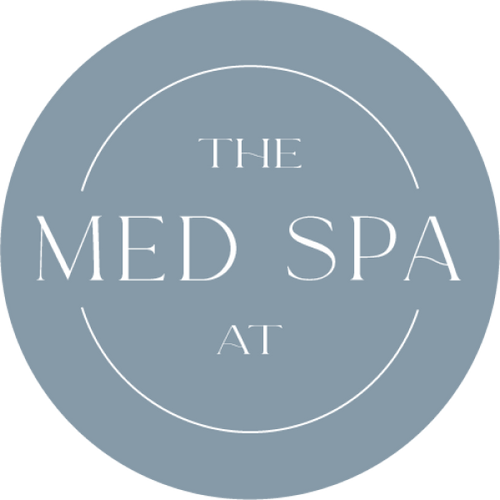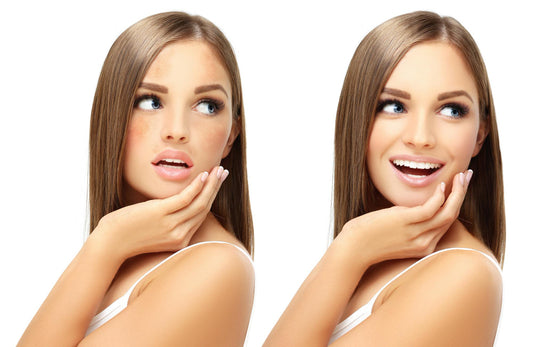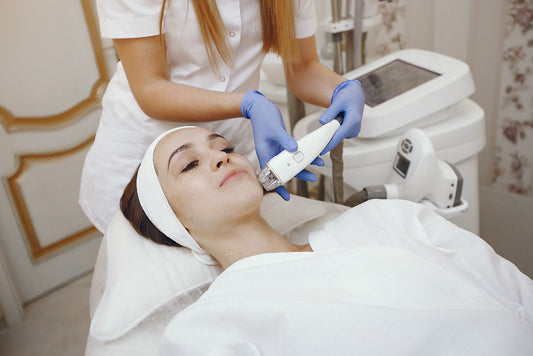Bringing a new life into the world is an exciting and transformative journey, inspiring expectant mothers to prioritize their health and well-being.
However, pregnancy also involves physical changes, including skin concerns such as acne, hyperpigmentation, and melasma. Many women wonder if they can use skincare treatments like chemical peels during pregnancy.
Chemical peels are a popular cosmetic procedure that can improve the appearance of the skin by removing the top layers of skin and revealing new, healthier skin underneath. However, many people think getting a chemical peel while pregnant is not a wise idea.
This blog post will explore getting a chemical peel while pregnant, addressing common concerns, and providing expert advice.
Debunking the Myths
During this beautiful time in a woman's life, and as an expectant mother, you may question what beauty treatments are safe for you and your baby.
One such concern is whether getting a chemical peel while pregnant is viable. While chemical peels are generally safe for non-pregnant individuals, the safety of chemical peels during pregnancy is a topic of ongoing debate.
Let's understand the safety of chemical peels during pregnancy!
Chemical peels are popular skincare procedures aimed at rejuvenating the skin, but their safety during pregnancy remains a subject of interest.
What are Chemical Peels?

Chemical peels are cosmetic treatments that involve applying a chemical solution to the skin, which helps exfoliate and remove dead skin cells. These treatments address various skin concerns, including the following:
- Acne
- Pigmentation
- Fine lines
- Sun damage
The chemical peel process stimulates the generation of new skin cells and can enhance the appearance of the skin:
- It improves skin tone.
- It enhances skin texture.
- It addresses various stubborn skin concerns.
Depending on the penetration depth and exfoliation intensity, chemical peels are classified as superficial, medium, or profound. While there are different types of chemical peels available, the depth and strength of the peel may contribute to various safety concerns during pregnancy.
You might also be interested in: Microneedling Vs. Chemical Peels - Which one is good for you?
Chemical Peels and Pregnancy

A Safety Concern
Chemical peels and pregnancy; here's what you need to know further about the topic.
Safety first! Regarding pregnancy, the mother and baby's health and well-being take precedence. The primary concern with chemical peels during pregnancy is the potential risk of harming the developing fetus.
Many people and medical professionals still consider chemical peels unsafe during pregnancy. There are a few reasons for that:
- First, this is because of the involvement of the chemicals used in these peels that can mix into the bloodstream and potentially harm the fetus.
- Second, the skin irritation and inflammation chemical peels cause can become more severe while you're expecting.
- And third because chemical peels can slow down the healing process. It can create significant issues for you if you encounter any complications during pregnancy.
Note: Talk to your provider if you have any questions about skincare during pregnancy. They can help you choose safe and effective skin treatments that are right for you.
Limited Research
Scientific studies on the effects of chemical peels, specifically in pregnant women, are scarce. Research and expert opinions are limited. Therefore, it is challenging to determine the safety and potential risks associated with this procedure during pregnancy.
As a precaution, most healthcare providers recommend avoiding chemical peels until after pregnancy. However, it is essential to consult and follow the advice of your healthcare provider for personalized guidance since they are familiar with your specific circumstances.
Hormonal Changes and Skincare During Pregnancy

Pregnancy is a transformative time in a woman's life! 👶 🤱
With all the beautiful changes happening during pregnancy, it's natural to want to take care of your skin too. You may want to get laser or botox under-eye treatment to solve your skin concerns and feel more confident about your appearance.
However, you should not forget that pregnancy induces significant hormonal changes that can impact the skin's appearance and health.
Expectant mothers often experience the following conditions due to hormonal fluctuations:
- increased skin sensitivity
- acne breakouts
- hyperpigmentation, and more.
While chemical peels may seem appealing as a solution to address these concerns, it is vital to prioritize safety and consider alternative skincare options during this delicate phase.
Potential Risks
Chemical peels can use acids and other chemicals that the skin might absorb. As mentioned earlier, the most common concern lies in the possibility of these substances reaching the bloodstream and potentially affecting the developing baby.
Without sufficient research, it is better to err on the side of caution to ensure the safest possible environment for both the mother and the child.
Safe Alternative Skincare Treatments that are Safe During Pregnancy

Fortunately, several alternative skincare treatments can help address common skin concerns. Here are a few suggestions:Gentle Moisturizing and Cleansing
Opt for gentle, pregnancy-safe cleansers and moisturizers to keep your skin clean and hydrated. These cleansers contain specific formulations for pregnancy and can address acne and other skin issues without harsh chemicals.
-
Mild Exfoliation
Consider using gentle exfoliating products or scrubs that do not contain harsh chemicals. Look for options with natural ingredients like fruit enzymes or gentle scrubs. This natural exfoliation removes dead skin cells while promoting a youthful glow.
-
Daily Sun Protection
Sunscreen is essential for protecting your skin from the sun's harmful rays, which can damage your skin and make pregnancy-related skin changes worse. Opt for mineral sunscreen during this sensitive time.
Wearing a broad-spectrum sunscreen and avoiding excessive sun exposure can help. So, shield your skin from harmful UV rays using a broad-spectrum sunscreen with at least SPF 30. Hats and protective clothing can provide additional sun protection.
-
Hydrating Facials
-
Natural Remedies

You may also be able to use some at-home products to liven up your complexion, as long as you get the go-ahead from your provider to use those, too.
Embrace the power of natural ingredients such as aloe vera, cucumber, or oatmeal to soothe and nourish the skin. You can Google or Youtube it for more information.
Although chemical peels may not be recommended during pregnancy, the above-mentioned alternative skincare options can safely address any common skin concerns and be your best ally during this very special time in your life!
Consult with your Skin Care Provider

If you experience any specific skin concerns during pregnancy, seek guidance from your experienced skin care provider in treating pregnant patients.
If you are considering getting a chemical peel, waiting until after giving birth is bestl. Once your baby is born, you can talk to your provider about whether or not a chemical peel is right for you.
Conclusion
In this blog post, we delved into the topic of chemical peels during pregnancy and explored whether they are considered safe for expectant mothers.
The safety of chemical peels during pregnancy remains a subject of uncertainty due to the limited scientific evidence available. As a precautionary measure, it is generally recommended to avoid chemical peels while pregnant.
Instead, explore safer alternatives and maintain a simple, yet effective skincare routine to keep your skin healthy and glowing throughout this miraculous journey.
Always consult with your healthcare provider and your skin care professional for personalized advice and recommendations during pregnancy. The health and well-being of both you and your baby are of utmost importance during this special time
Read more about:
Can Dry Eye Cause Blurry Vision? What You Should Know
Juvéderm Vs. Botox: Which Treatment is Right for You?
Clear + Brilliant vs IPL: Which Treatment is Right for You?



 Skin Treatments
Skin Treatments





